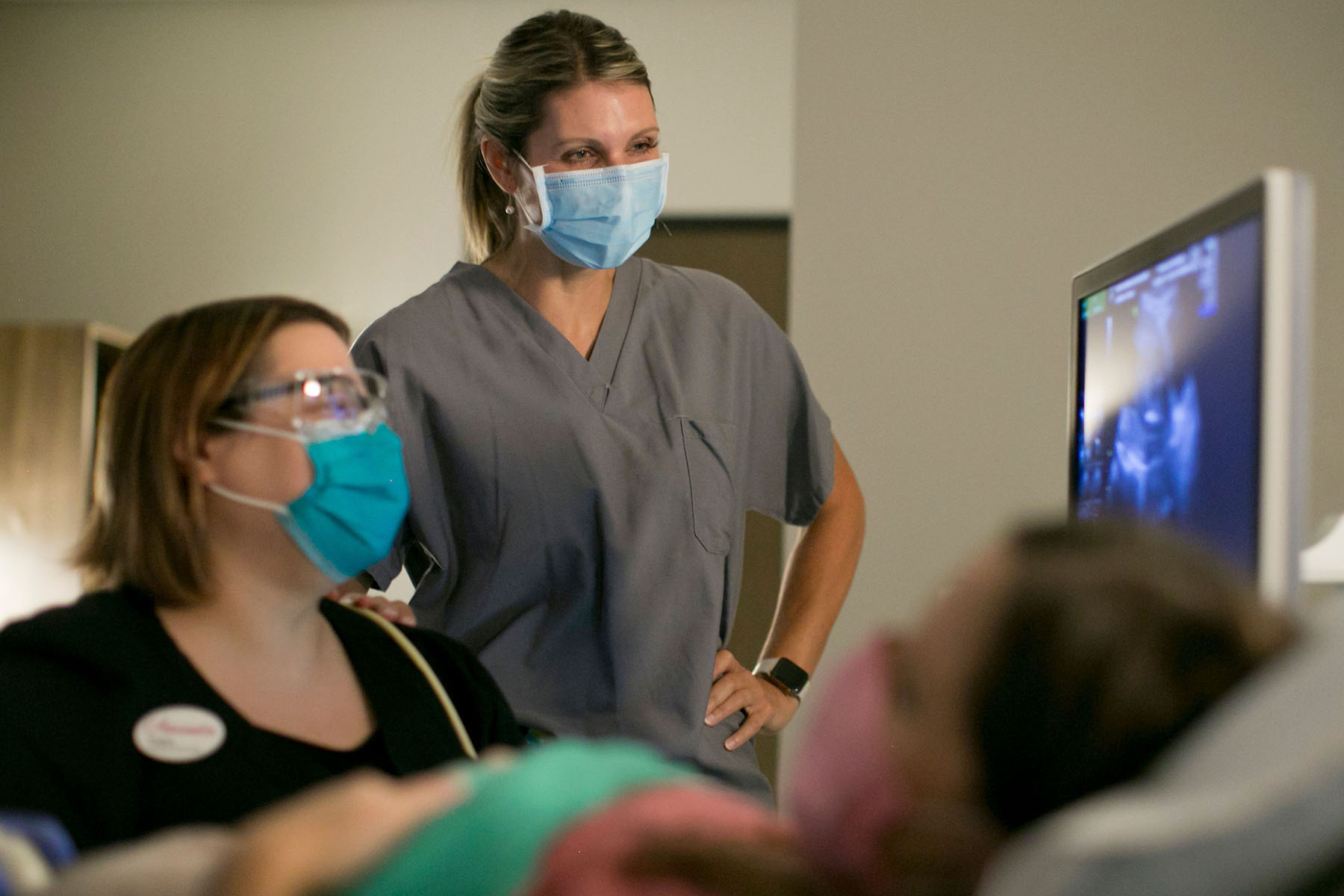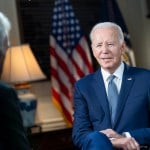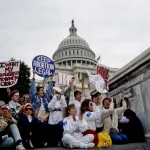Your trusted source for contextualizing abortion and Election 2024 news. Sign up for our daily newsletter.
Dr. Kirstin Lyerly saw a patient this month who wanted her IUD replaced but was nervous about the potential pain. It was toward the end of the day and there wasn’t enough time for the patient to pick up a prescription to relieve her anxiety and return, so Lyerly suggested they reschedule the procedure for a later date.
“She looked me square in the eye and said: I have to do it now, I have to get it now, I have to get it done before the election, because I don’t know what’s going to happen after the election,” Lyerly recalled.
Lyerly is a Democrat running for a U.S. House seat in Wisconsin’s 8th Congressional District. If she succeeds, she will have to give up her medical practice. Even still, she felt that the existential threats abortion bans posed to her and other doctors’ continued ability to treat patients made the potential sacrifice worthwhile.
Though she lives in Wisconsin, Lyerly has commuted seven hours each way to neighboring Minnesota for about two years now, where she spends 10 days a month as a hospital’s 24/7, on-call OB-GYN. The arrangement began after abortion access was cut off in Wisconsin in the wake of the Supreme Court’s 2022 decision in Dobbs v. Jackson Women’s Health Organization. Then, after Lyerly was one of the plaintiffs who successfully challenged a 1849 law that conservatives said banned abortion, her involvement drew attention from anti-abortion groups, which started filing complaints against her medical license. Since she was already practicing in Minnesota, the complaints were dismissed.
Abortion is now legal in Wisconsin until 22 weeks, but Republican lawmakers there continue introducing anti-abortion legislation that would restrict access. In Minnesota, where abortion is not restricted, Lyerly said her patients — like the one getting the IUD — are still worried that even if Congress doesn’t pass a federal abortion ban, a Republican majority could restrict access to contraception or incorrectly reclassify types like IUDs as abortifacients.
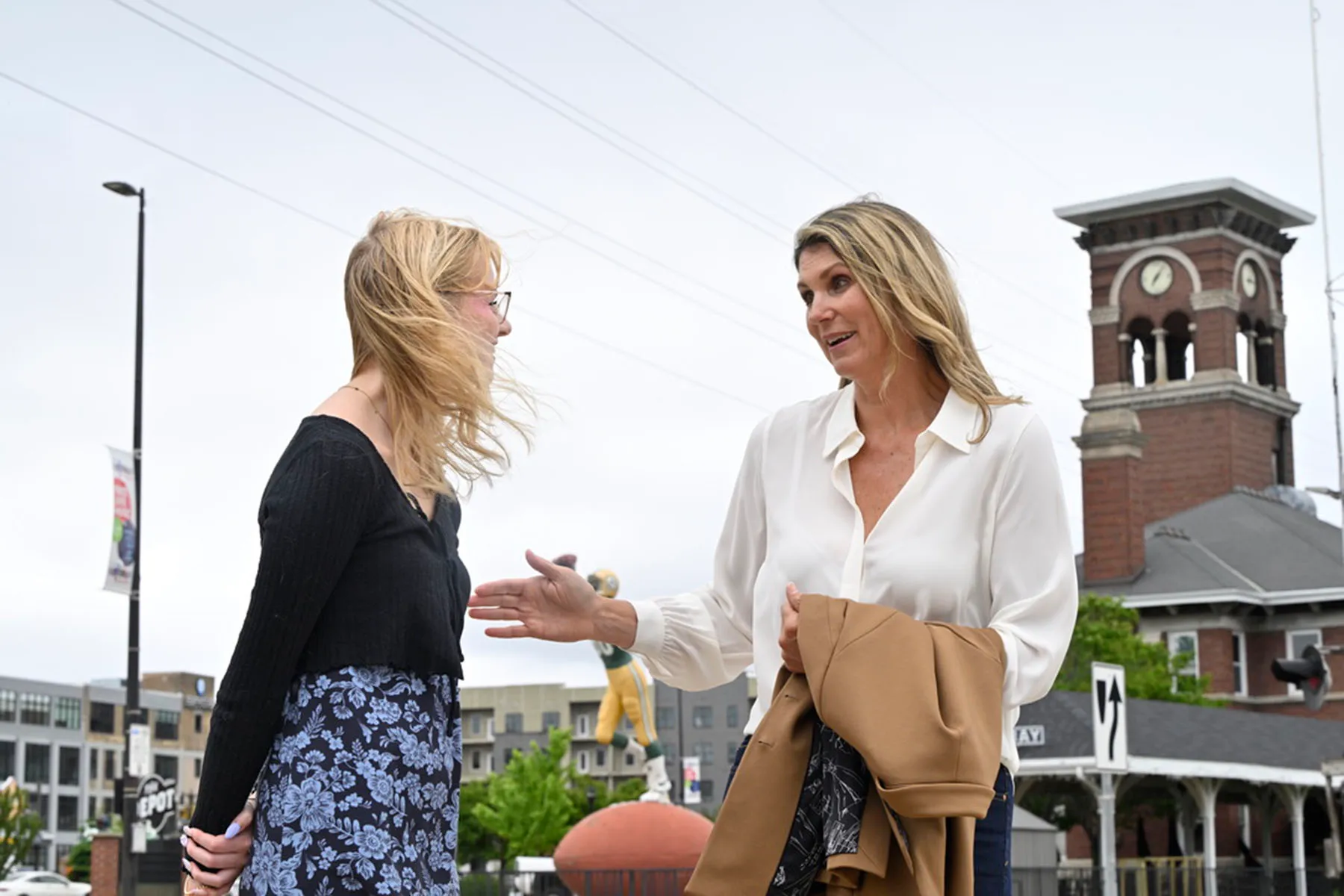
Lyerly said the patient nervous about the IUD insertion “didn’t know I was running for office when she said, ‘I don’t want to get political,’ and I said: ‘Well, sister, you found the right doctor if you want to get political.’”
Even still, potentially giving up her medical practice to serve in Congress wasn’t a choice she made lightly.
“It was the biggest hurdle that I had to overcome in order to make the decision to run,” Lyerly said.
“I can help patients, one patient at a time in the exam room, and I personally find that really satisfying work. And I can help larger groups of patients through the advocacy work that I do with the American College of Obstetricians and Gynecologists, and that’s very meaningful as well. But we don’t have any pro-choice, OB-GYN doctors in Congress. And the way I build consensus and find common ground and educate, I think that I could really make a difference in Congress,” she added.
Lyerly is one of two Democratic women OB-GYNs running for a U.S. House seat this year. If elected, they would be the only OB-GYNs in Congress who support abortion rights. The other candidate is Dr. Kelly Morrison in Minnesota’s 3rd Congressional District. Nineteen physicians currently serve in Congress — 15 in the House, four in the Senate. Only three are women. The only OB-GYNs — Reps. Michael Burgess of Texas and Roger Marshall of Kansas — are Republicans who oppose abortion.
Lyerly’s is considered a longshot bid. Her district, which stretches from Green Bay up Wisconsin’s Door Peninsula into Lake Michigan, has a Cook Partisan Voting Index (PVI) of R+10. Morrison has an easier path. Her district to the west of Minneapolis has a Cook PVI of D+8.
Morrison said that the 2016 election of Donald Trump “thrust me into a different brain space.” Before launching her congressional campaign, she was serving in the state Senate after two terms in Minnesota’s House.
“He ran on appointing justices to the court that would overturn Roe v. Wade, and so I knew what the implications of his election would mean for reproductive health care and for women’s health, and it was terrifying to me, so it it pushed me into a place where I made a pretty drastic change in my life to run for office so that I could be part of an effort to protect reproductive health care here in Minnesota,” Morrison added.
When her member of Congress, Democratic Rep. Dean Phillips, said he wasn’t running again, her next step became clear.
The specter of the Supreme Court’s Dobbs ruling looms large over the 2024 elections, with abortion rights and other issues related to reproductive health impacting races up and down ballots. In addition, voters in 10 states will be deciding ballot measures that would add abortion protections to their state constitutions.
The first federal elections after Dobbs were the 2022 midterms, held several months after the ruling when its full impact was not yet clear. Even still, Democrats fared better than expected that year in part due to concerns about abortion access.
Two years later, 13 states have full abortion bans, and four prohibit abortion after six weeks, before many people know they are pregnant. The stories of women who have struggled to get abortions, find miscarriage care and access assisted reproductive technologies like in vitro fertilization (IVF) have dominated headlines. The first confirmed deaths related to abortion bans were reported by the investigative newsroom ProPublica in September.
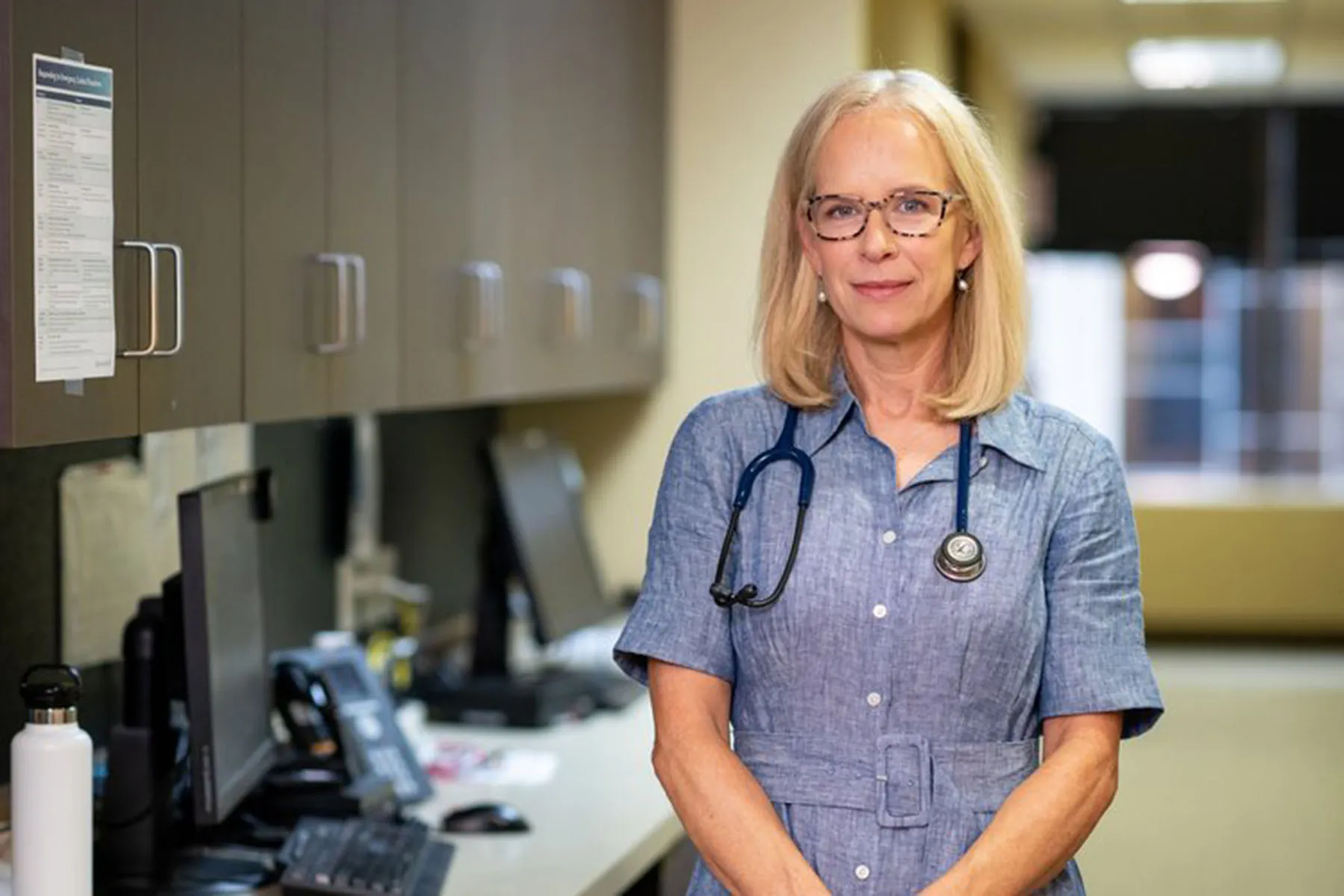
In the White House contest, Republican Trump has not articulated a clear position on issues related to reproductive health as he competes against Vice President Kamala Harris, a Democrat. The former president touts the role he played in overturning Roe by appointing three of the conservative justices who decided Dobbs. Trump also recently proclaimed himself the “father of IVF,” despite the reality that some strict abortion bans are widely seen by experts as prohibiting IVF, in which embryos are created outside of the womb. He repeatedly resorts to repeating lies and misinformation about Democratic policies related to abortion.
Down-ticket Republican candidates, meanwhile, are largely trying to create distance between themselves and the abortion bans enabled by Trump’s Supreme Court justices and congressional votes in which Republicans have repeatedly blocked Democratic efforts to protect IVF, establish a right to contraception and protect abortion access. In competitive House races, Republican candidates have tried to soften their rhetoric about abortion, though not always their policies or votes.
Morrison told The 19th she was “deeply proud” to help lead the effort to protect abortion access in Minnesota as the only OB-GYN in the state legislature. Now, she wants to take the fight to Washington to work on legislation that would affect the rest of the country as well.
“There are no pro-choice OB-GYNs in the United States Congress, and I think at this moment in history, it’s incredibly important that we have those voices in that body as we work to protect reproductive freedom for all Americans,” Morrison said.
To check your voter registration status or to get more information about registering to vote, text 19thnews to 26797.
